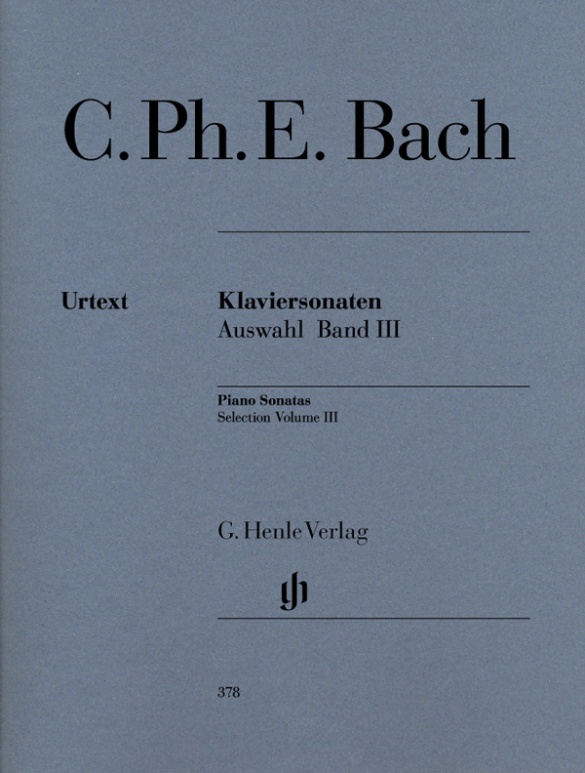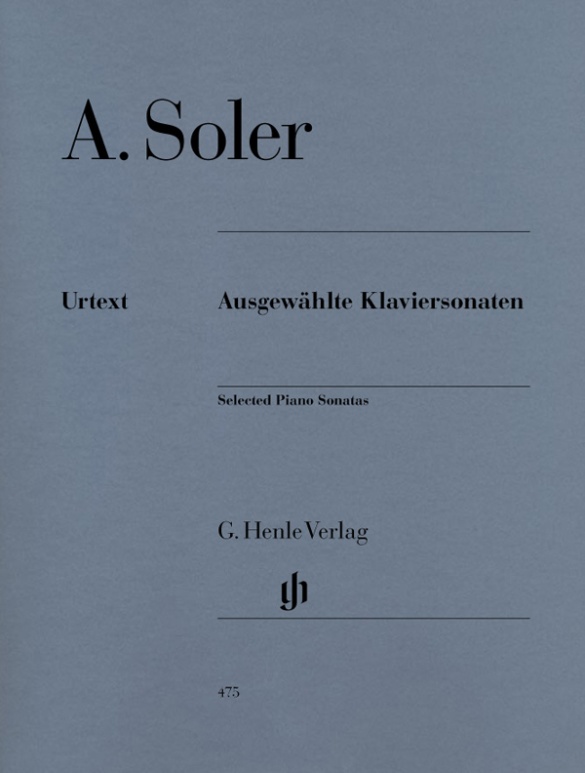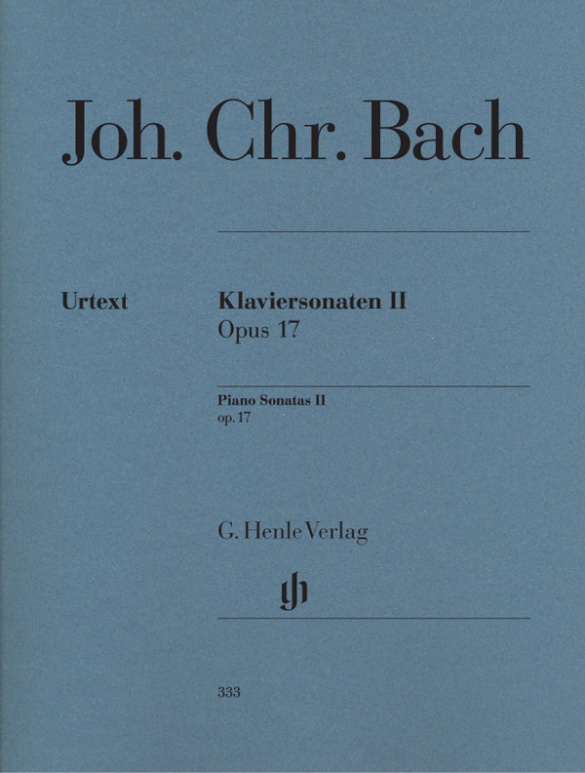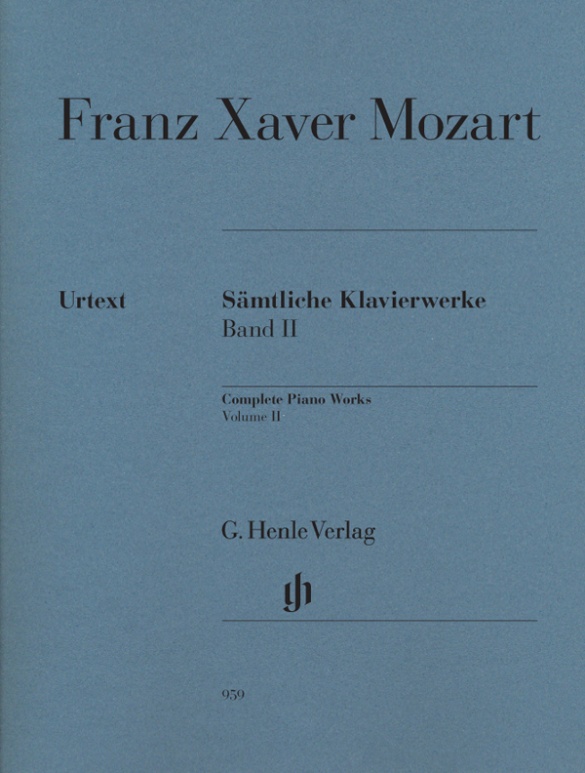Carl Philipp Emanuel Bach
Piano Sonatas, Selection, Volume III
Carl Philipp Emanuel Bach was probably the most famous of the Bach sons. He wrote many works for keyboard instruments, and these form the core of his compositional oeuvre. This volume is the last of Henle’s three-part anthology edition of selections of his piano sonatas, and contains 11 sonatas from between 1760 and 1783, three of them published here for the first time. Many performance instructions from C.P.E. Bach’s important musical instruction book, the “Versuch über die wahre Art das Clavier zu spielen” [Essay on the True Art of Playing the Keyboard], find their way into this volume, including a table in which the most important ornamentation signs and their proper execution are brought together.
内容/詳細
作曲家について
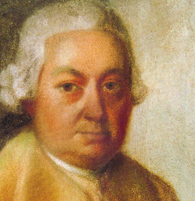
Carl Philipp Emanuel Bach
He is primarily famous for his music for keyboard instruments and is regarded as the most important composer of sonatas (approximately 150) in the mid eighteenth century. His self-image as a composer is in line with the aesthetic of the genius. His musical idiom is characterized by a “speaking” disposition and by moments of surprise.
| 1714 | Born in Weimar on March 8; second surviving son from Johann Sebastian Bach’s first marriage. Musical education from his father; attends the Lutheran Latin school in Köthen, the St. Thomas School in Leipzig. Participates in the Collegium Musicum. |
| 1731 | Law studies in Leipzig. |
| 1734–38 | Continuation of law studies in Frankfurt an der Oder. Occasional compositions. |
| 1740–68 | Harpsichordist in Berlin at the court of Frederick II. |
| 1741 | Symphony in G major (Wq 173), his first. |
| 1742–44 | “Prussian” and “Württemberg” Sonatas. |
| 1753 | Treatise: “Essay on the True Art of Playing Keyboard Instruments” (First part; second part in 1762) |
| 1758 | Publication of “Professor Gellert’s Sacred Odes and Songs” (Second collection in 1764) |
| 1760 | Publication of “Six Sonatas for Keyboard with Varied Reprises.” |
| 1768 | He succeeds Telemann as music director and cantor at the Johanneum Latin school in Hamburg. Composes liturgical music (cantatas) as well as instrumental works (symphonies, concerti, chamber music), large vocal works (Passion settings and oratorios), and occasional compositions for the city’s musical establishment. Organizes “Bach’s Private Concerts.” |
| 1775 | Oratorio “Die Israeliten in der Wüste” (“The Israelites in the Desert”). |
| 1779–87 | Publication of “Clavier Sonatas and Free Fantasies along with Divers Rondos […] for Experts and Amateurs.” |
| 1788 | Dies in Hamburg on December 14. |
校訂者や運指担当者について
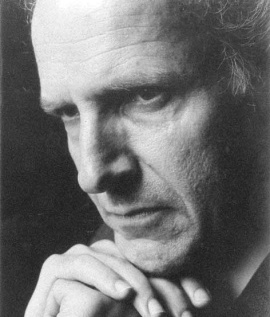
Klaus Börner (運指)
Prof. Klaus Börner, born in 1929 in Senftenberg/Niederlausitz, studied the piano at the School of Music in Weimar (1949 Privatmusiklehrerexamen) and at the Conservatoire de Lausanne (1952 Examen de virtuosité). Piano masterclasses with Alfred Cortot, Edwin Fischer and Wilhelm Kempff rounded off his musical education.
In 1956 he won 1st prize in the International Piano Competition in Barcelona and in 1959 was chosen to be part of the “Bundesauswahl junger Künstler des Deutschen Musikrates”. He taught the piano and teaching methodology at the Robert Schumann Conservatory in Düsseldorf and from 1969–1997 was Professor of Piano, Piano Pedagogy, and the Structure of Music in the Music Faculty at Johannes Gutenberg University in Mainz. He published the “Handbuch der Klavierliteratur zu vier Händen” (Atlantis Musikbuch-Verlag, Zürich). Klaus Börner died in Neuss on 20 November 2018.
製品安全に関する情報

G. Henle Verlag
製品の製造元に関する情報はこちらでご覧いただけます。G. Henle Verlag
Forstenrieder Allee 122
81476 München
info@henle.de
www.henle.com
おすすめ
autogenerated_cross_selling
このタイトルを含む他の版
このタイトルを含む他の版


